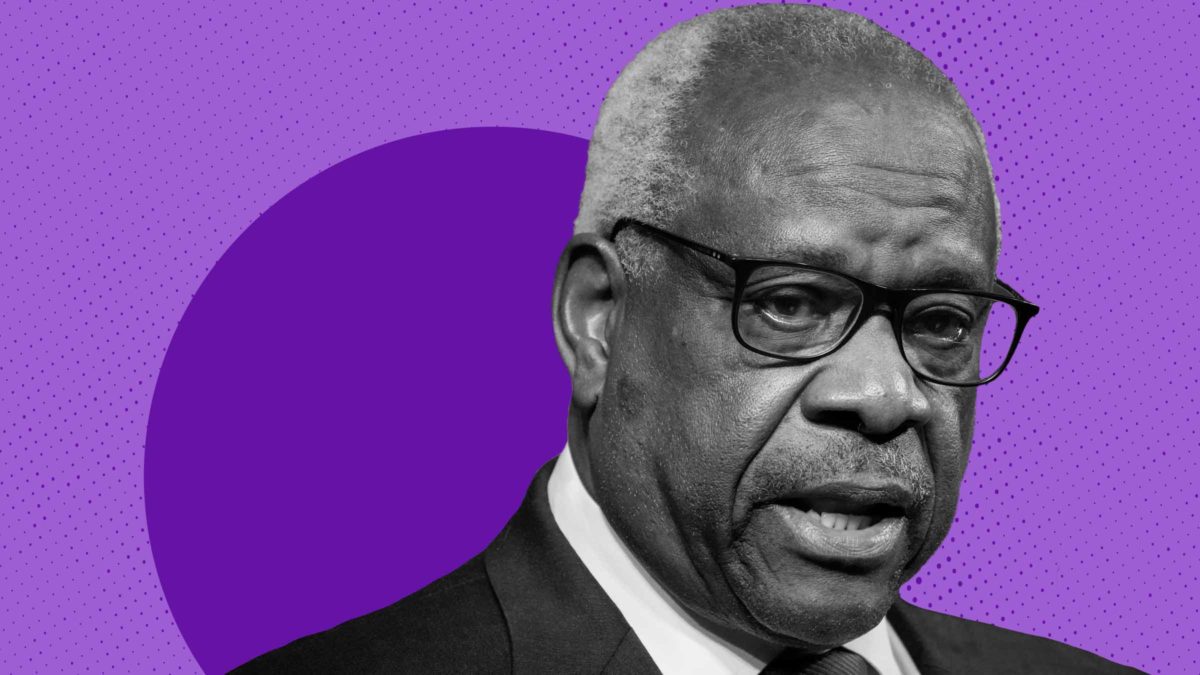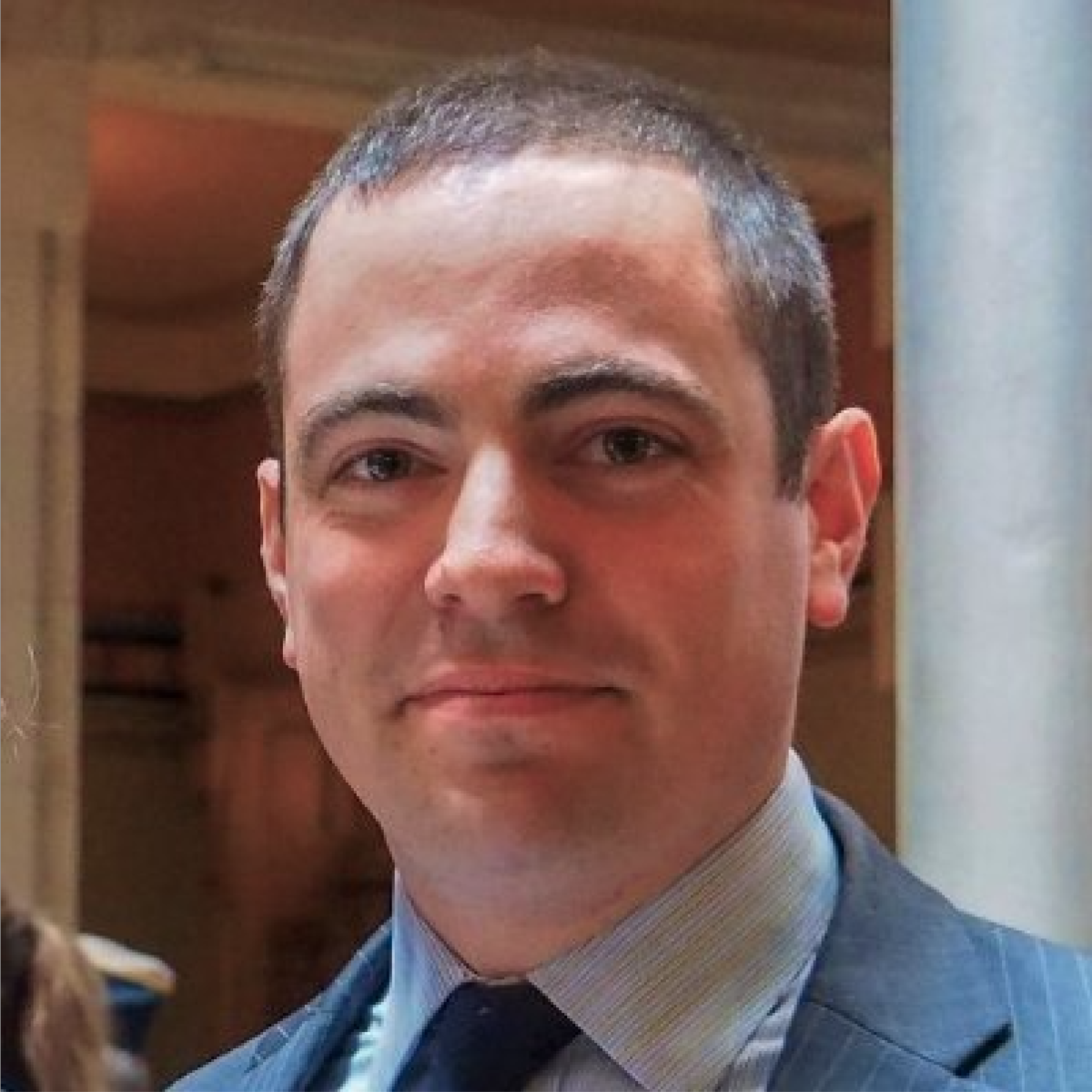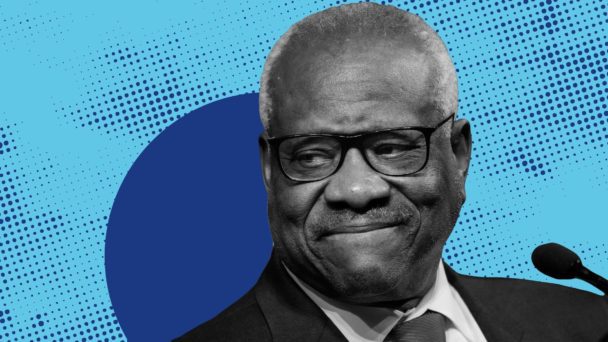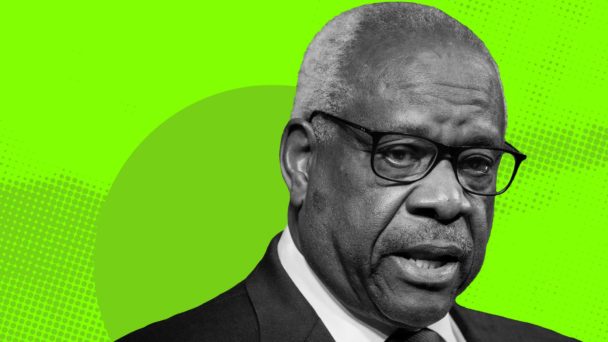In recent weeks, ProPublica has reported extensively on Justice Clarence Thomas’s years of accepting lavish gifts from real estate magnate Harlan Crow, including extensive travel on private jets and superyachts. Crow, a Republican megadonor whom Thomas described as among his “dearest friends,” also purchased real estate from Thomas, including the home where Thomas’ mother still lives rent-free. Plenty of people have dreamed about one day being able to set up their parents for life, but most of us don’t have reactionary billionaires willing to do it for us.
Thomas claims to believe that all of these gifts are perfectly reasonable, and that judges need not include the value of “personal hospitality from close personal friends” in their mandatory disclosures. Predictably, conservatives have lined up behind Thomas, claiming that there is nothing out of the ordinary about an rich old guy with a statue garden dedicated to murderous dictators spending millions of dollars to jet Clarence Thomas around the globe. “Supreme Court justices are allowed to have friends, even if a particular friend is rich,” wrote one pundit in The Hill.
This claim sounds reasonable enough at first blush. (Who wouldn’t like a generous best friend or five?) But in light of recent revelations about how many of the justices’ “friends” are in fact ideologues trying to influence their rulings, it might also be fundamentally incompatible with the Court’s perception of itself. Institutions that cast themselves as above politics, influence, or reproach invariably invite corruption, and the Supreme Court is no exception. Even those with ethics codes and other protective mechanisms in place often run afoul of these safeguards when they accumulate too much power without being subject to meaningful scrutiny.
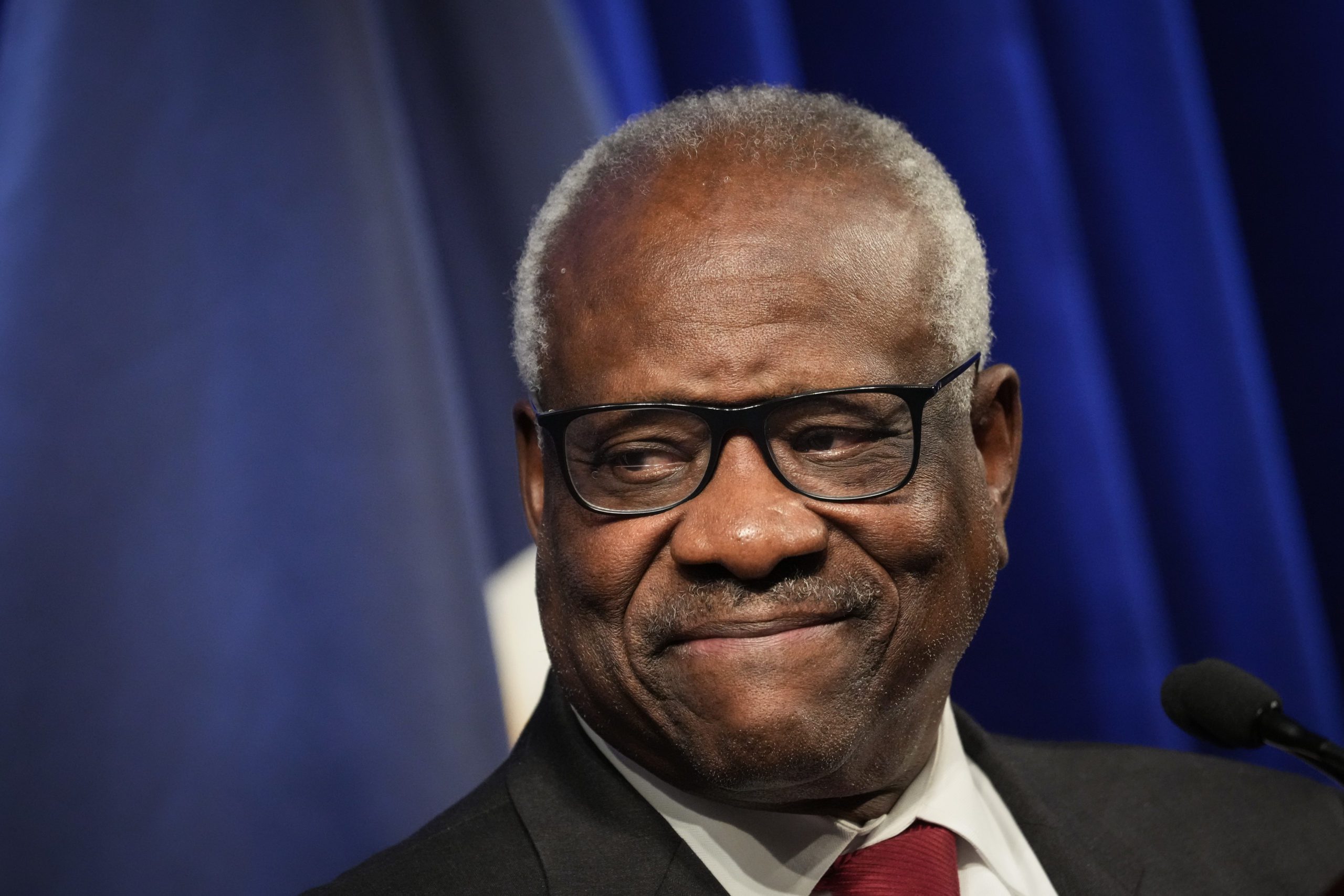
When the foie gras bar opens (Photo by Drew Angerer/Getty Images)
Thomas isn’t the only justice whose friends have made news for all the wrong reasons. Last year, the New York Times reported on the adventures of Gayle and Donald Wright, a pair of so-called “stealth missionaries” who were engaged in a influence campaign to infuse Supreme Court decisions with conservative Christian values. (The campaign’s name: Operation Higher Court.) Wright and company made large donations to the Supreme Court Historical Society and socialized with Alito and his wife, Martha-Ann. Alito eventually felt comfortable enough that he provided them—people who he thought were his friends—with confidential information about ongoing Supreme Court deliberations. (Thomas, for what it’s worth, was also acquainted with the Wrights, and at one point allegedly told them to “keep up” what they were doing, because it was “making a difference.”)
The Alito-Wright affair highlights the emptiness of deflections of Thomas’s behavior. Even if Crow and the Wrights did not buy cases or influence individual opinions, they all saw real value in providing social and emotional support for like-minded justices, encouraging them to stay the course or even to push them further to the right. (The Rev. Rob Schenck, a former associate of the Wrights, went so far as to call the members of their operation the “Ministry of Emboldenment.”) Clarence Thomas probably doesn’t need cash in a briefcase to gut individual rights in the name of corporate or religious interests, but some extravagant back-slapping from like-minded folks couldn’t have hurt.
Even in a culture where most people consider politicians to be some degree of crook, the Supreme Court has, until recently, managed to cast itself as an impartial arbiter of the law. This sort of framing is not unique to the modern federal bench: For example, Catholic priests traditionally took a vow of celibacy to focus on their work “unattached to spouse and children.” Yet during the Middle Ages, elite priests were frequently found to be flouting the rules and living lavish lifestyles, using their positions of trust to hoard wealth and have secret families. The Reformation kicked off largely in response to the corruption that flourished under a system where elites urged the public to consider a select few as beyond contempt. At some point, ordinary people will always realize that the trappings of an office or “calling” have nothing to do with the way elites live.
The mythology surrounding the Supreme Court imagines the justices similarly—as analyzing cases objectively, free from bias, essentially cut off from outside influences. But if they aren’t going to live as legal monks, barred from forming friendships and cut off from the outside world, Alito and Thomas have demonstrated how badly the justices need someone watching to make sure they don’t take advantage of the incredible power they wield. It’s bad enough that the justices understand how unaccountable they are. Even worse is the fact that other powerful people with a vested interest in the Court’s work understand this just as well, and can do whatever they want to try to influence it. Why bother trying to buy one of 435 members of Congress, who are actually subject to ethics laws, when the nine members of the Supreme Court have an effective veto over any policy they decide they don’t like?
Imposing an enforceable ethics code on Supreme Court justices is a start—a modern-day 95 Theses to nail to its front door as soon as physically possible. But merely forcing Clarence Thomas to complete some extra paperwork won’t, by itself, make him accountable in any meaningful sense, because even if Thomas were to disclose all of his lavish vacations, he would still have the ability to gut reproductive rights, spike environmental protections, and install a president in a contested election. Only right-sizing the Court will fix the real problem here, which is that Thomas is both corrupt and powerful.
The myth of the objective, all-powerful Supreme Court only serves powerful interests, not the actual people of the country. If Sam Alito is enough of a dope to fall for an influence operation that anyone could have seen through with a moment’s thought, and Clarence Thomas sees nothing wrong with having a wealthy benefactor cover his mom’s rent, they don’t deserve the power they hold any longer.
